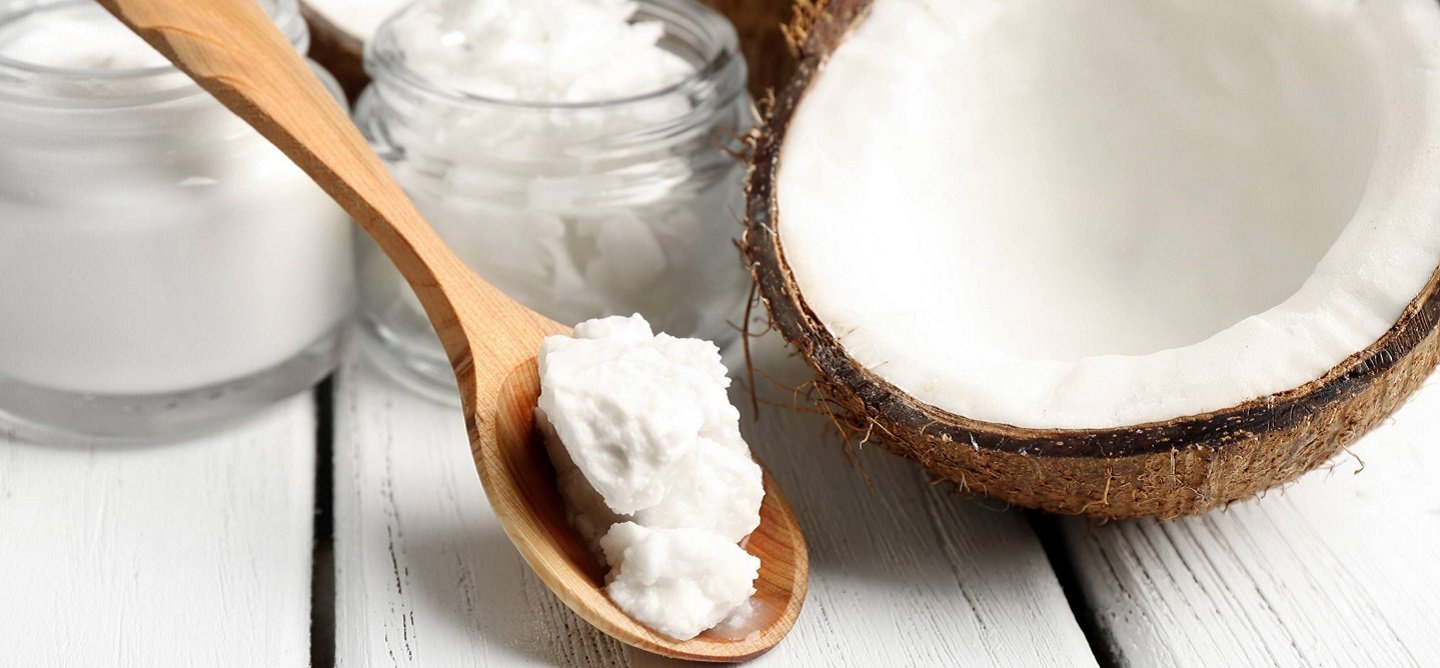Coconut oil is seeing a serious surge in popularity, and not just because it makes everything taste uber-tropical.
The oil, extracted from the flesh of a coconut, is rumored to boost dieters’ weight-loss efforts.
Because it’s derived from a plant and not animal products, many believe coconut oil is a healthy source of saturated fat, says Florida-based registered dietitian Alyssa Cohen.
Paleo dieters commonly use it as a substitute for butter, lard and other sources of saturated fat, and also add it to foods (stir-fries, baked goods) and drinks (coffee, smoothies) to boost satiety.
Some biohackers even drink a tablespoon of coconut oil with hot water pre-meal to reduce appetite.
So how seriously should we be taking the whole coconut oil weight-loss love affair – and is it time for an oil change? We got in touch with the experts to find out.
How’s it (supposed) to work?
Coconut oil contains a relatively high concentration of medium-chain triglycerides (MCTs) – a fatty acid that’s processed more efficiently by the body than the long-chain dietary fats found in most foods (think: meat and dairy products), explains Cohen.
Long-chain fatty acids take the scenic route as they metabolise (break down), setting up camp in fat tissue along the way. MCTs, however, take a shortcut that allows them to be metabolised super-fast and burned as energy instead.
Currently, however, there’s a lack of consistent evidence that the coconut oil weight-loss link is legit.
“The few small-scale studies that have been performed show that consuming coconut oil may cause very modest reductions in weight,” says New Jersey-based registered dietitian Dafna Chazin, but there’s no evidence to suggest that doing so can lead to significant weight loss. Or that it can lead to weight loss over the long term.
Meanwhile, a recent study published in the European Journal of Nutrition found that coconut oil didn’t perform any better than olive oil at boosting metabolism or increasing satiety among overweight women. (Cue sad trombone.)
Fats are the most calorically dense of all the macronutrients we nosh on (clocking in at roughly 37kJ per gram). Coconut oil, specifically, contains a whopping 502kJ per tablespoon and 12g of saturated fat – which, for many, is more than half the recommended daily amount.
“When managing weight, the most important thing is kilojoule awareness – practising proper portion control and spreading out fat servings throughout the day,” Chazin says. “Adding coconut oil to your coffee or smoothie without balancing those extra kilojoule elsewhere in your day will likely lead to weight gain, not loss.”
Bottom line: “Coconut oil is way overhyped, and will not elicit weight loss in the absence of overall kilojoule restriction,” says Boston-based registered dietitian Sheri Kasper. “Diets work because they create a kilojoule deficit.”
Have your fat, and lose fat, too
Even though using coconut oil alone won’t help you ditch those pesky kilos, it may trigger a domino effect of healthier eating habits. Adding some fat to your meals can help you stay fuller longer, which could lead to less snacking between meals and decrease post-nosh dessert cravings, says registered dietitian and blogger Jennifer Kanikula.
“Coconut oil also creates a different flavour profile, likely increasing the satiety of taste,” she adds. “If you’re more satisfied after a meal both physically and mentally, you’re not likely to feel the need to have additional kilojoules at other times of the day.”
The best way to incorporate coconut oil into your weight-loss routine… and still lose weight? Make it part of an overall healthy diet, says Kasper.
Use it as a replacement for other saturated fats, such as lard, butter and meat, or simply make room for it in your daily kilojoule budget.
A 6 694kJ diet, for example, includes four to five teaspoons of healthy oil (salmon, avocado, nut, olive oil), plus a bonus 585kJ that can be used on things like added sugars and saturated fats, like coconut oil (FYI: each teaspoon of coconut oil contains 167kJ).
Chazin recommends limiting your coconut oil intake to two teaspoons per day.
If you want to use coconut oil to enhance the flavour and texture of your favorite eats, choose either unrefined or extra-virgin coconut oil, which is minimally processed (no refining, bleaching, or deodorising) and still retains its super-satisfying coconutty flavour.
“Coconut oil’s smoke point is 176 degrees Celsius, making it a good choice for baking and sautéing, but not for frying, which is a weight-loss no-no, anyway,” says Kasper. (In case you’re curious, olive oil smokes at about 204 degrees Celsius, so it’s still better for high-heat cooking.)
Use coconut oil where you can taste it, Chazin suggests – say, adding a teaspoon or two to a smoothie, or (no more than) 1/4 cup to your next batch of homemade granola, and combining it with a quality protein source for that ultimate satiety boost. For example, a side of scrambled egg whites with your smoothie or a serving of Greek yogurt with granola sprinkled on top.
You could also use a teaspoon of coconut oil to make a tasty veggie stir-fry, stir it into your morning oatmeal to amp up fullness, or drizzle it over air-popped popcorn for a delicious, nutritious (and satisfying) snack.
Fuente: www.health24.com
